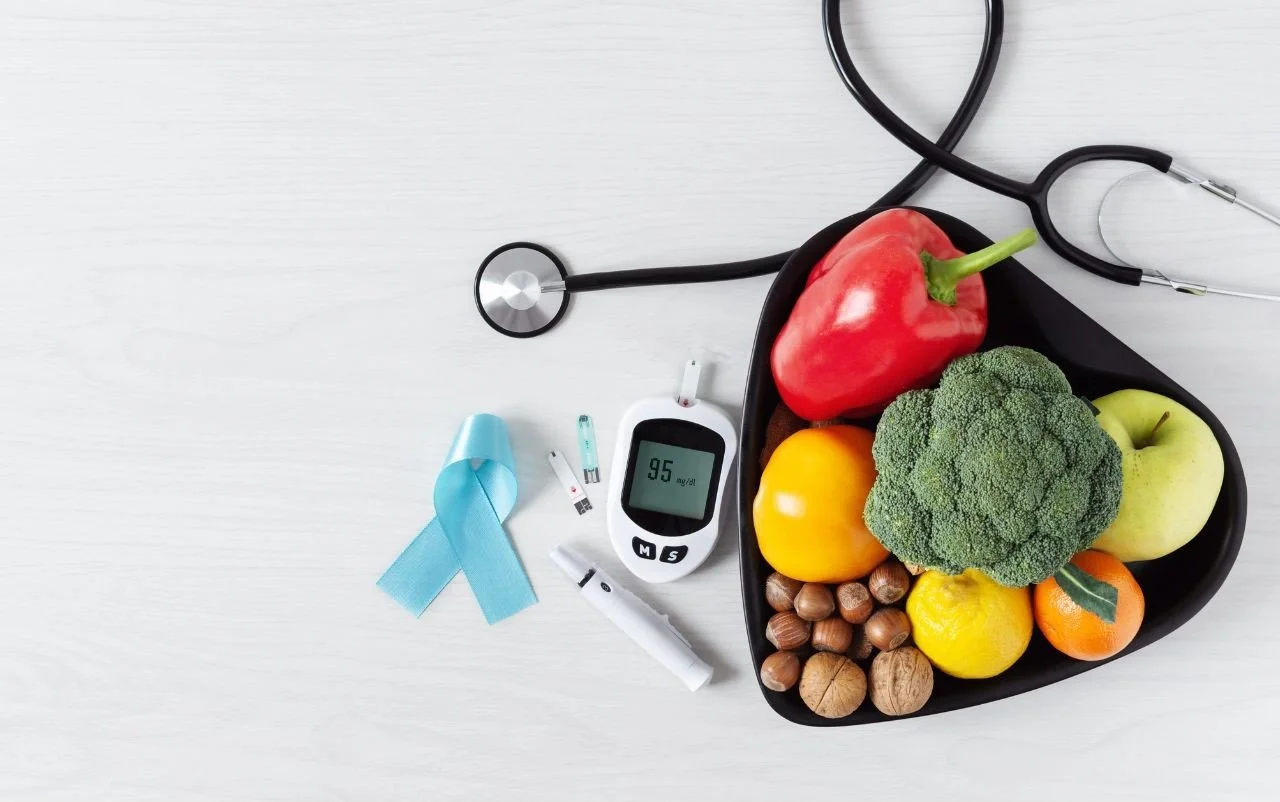It’s World Diabetes Day, so let’s talk about the causes and complications of diabetes and how a dietitian can help you prevent or manage it.
Diabetes affects millions of people worldwide and about 250,000 in Ireland alone. It is a serious long-term health condition that causes high blood sugar levels. The most common type of diabetes in Ireland is type 2 diabetes. Type 2 diabetes can be prevented or managed with help from healthcare professionals, like registered dietitians.
What is Type 2 Diabetes?
When you eat a food that has carbohydrates like bread, pasta, potatoes, or rice, your body breaks it down into sugar which goes into your blood.
Your body is made up of building blocks called cells and these building blocks need the sugar for energy. However, these building blocks are locked and a key is needed to allow the sugar to go into the cells.
This key is a hormone (body chemical) called insulin. When someone has diabetes, the keys don’t work properly, so the sugar cannot get into the cells. Instead, the sugar builds up in your blood.
What Causes Type 2 Diabetes?
Your pancreas is like your body’s factory to make the insulin keys.
Obesity or overweight can put extra pressure on your pancreas. Just like a real factory, if you put extra pressure on your pancreas, the workers go on strike. The insulin keys stop working properly or the pancreas stops making enough keys. This means the sugar in your blood can’t go into your cells to be used for energy. Instead the sugar builds up in your blood.
Genetics and a diet high in full sugar fizzy drinks, refined carbohydrates like white bread, sugary breakfast cereals and red and processed meats have also been linked to a higher risk of type 2 diabetes.
What are the signs of diabetes?
The most common signs of type 2 diabetes are:
Excessive thirst
Needing to pee a lot
Feeling tired, even when you have slept well
Blurry eyesight
Bruises and cuts healing very slowly
Losing weight without trying
If you think you may have type 2 diabetes, speak to your GP and ask to have your blood sugars tested.
What are the consequences of type 2 diabetes?
If your blood sugar is high over a long time period, the blood vessels that transport your blood around your body can become damaged.
Because there are blood vessels in every part of your body, this damage can cause lots of different health problems. The most common complications of type 2 diabetes are:
Heart disease
Kidney problems
Eyesight problems
Nerve damage
Can Type 2 Diabetes Be Prevented?
In many cases, type 2 diabetes can be prevented. Here are a few ways you can reduce your risk of type 2 diabetes.
Eat a nutritious balanced diet with fruits, vegetables, wholegrains, lean proteins, and healthy fats.
Aim to do 150 minutes of physical activity per week. That’s about 30 minutes 5 days a week.
Maintain a healthy weight. If you have overweight or obesity, losing 5-10% of your body weight could help reduce your risk of health problems like type 2 diabetes.
Get regular check-ups so any health problems can be identified as early as possible.
How can registered dietitians help people with type 2 diabetes?
They are many ways registered dietitians can help people with type 2 diabetes or at risk of developing type 2 diabetes.
For example, your dietitian can help you:
Understand type 2 diabetes and how to prevent or manage it.
Understand how to prevent complications of type 2 diabetes like heart disease.
Set nutrition and health goals.
Manage your blood sugar levels.
Lose weight or prevent weight gain.
Eat a healthy balanced diet, personalised to your needs.
Read food labels and make nutritious food choices.
Monitor your progress and celebrate your success.
Today, 14th November, is World Diabetes Day - find out more here!
If you are interested in speaking with one of our registered dietitians, click here.
Written by: Michaela Carrick, CORU Registered Dietitian with Spectrum Nutrition



